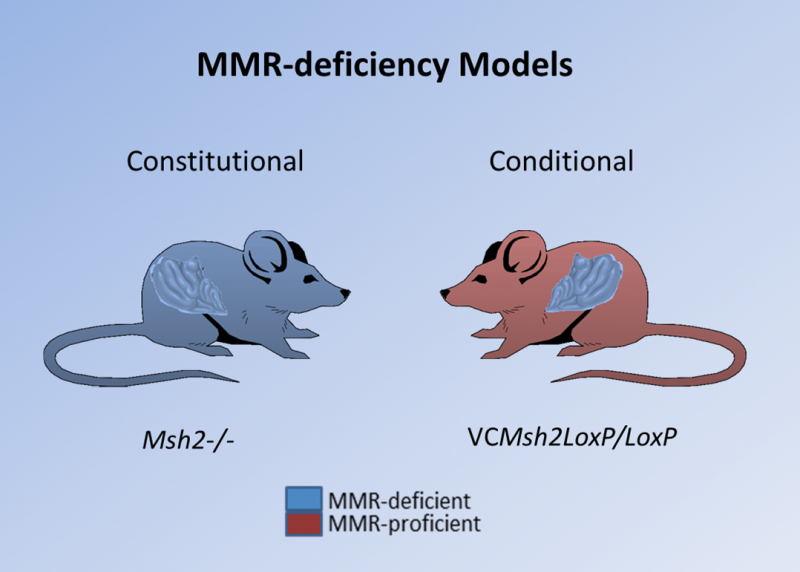Molecular Pathogenesis of Murine MSI Intestinal Tumors
Human studies evaluating preventive approaches in MSI cancers are limited by the number and combinations of frameshift peptides to be examined and the number of patients that can be recruited. Also, testing vaccination-based immune responses in terms of tumor stage, load and spatial distribution in a longitudinal manner is not feasible in human MSI tumor-bearing individuals. VCMsh2loxP mice represent a suitable animal model for Lynch syndrome because these mice develop MMR-deficient and MSI tumors in the small and large intestine due to intestine-specific ablation of the Msh2 gene. However, molecular data on murine MSI target genes and immunogenic frameshift peptides are still missing.
We identified cMNR frameshift mutations in several murine candidate genes in MSI intestinal tumors of VCMsh2loxP mice. Overall, we seek to establish a comprehensive frameshift mutation profile of MMR-deficient intestinal tumors, define candidate murine frameshift peptides and evaluate their immunogenic potential. These data will uncover potential drivers of murine intestinal tumorigenesis and are essentially required to devise an efficient preclinical frameshift peptide vaccination strategy.
Dr. Winfried Edelmann, Albert Einstein College of Medicine, New York, US
Dr. Steven Lipkin, Weill Cornell University, New York, US

Involved researchers




